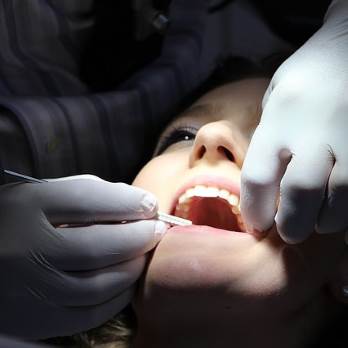What Dental Implants Really Cost in 2025 – UK
In 2025, the cost of dental implants in the UK depends on factors such as the number of implants, materials used, and any additional procedures required. Prices vary between clinics and locations, and treatments can include single implants, multiple implants, or full-arch restorations. Many clinics also offer financing options to help manage the cost, while NHS coverage is generally limited to cases with medical necessity.

Understanding Dental Implant Cost UK in 2025
The cost of dental implants in the UK varies considerably depending on several factors. A single dental implant typically ranges from £1,500 to £3,500, though this can increase significantly for complex cases or premium materials. The total treatment cost includes the implant post, abutment, and crown, with additional expenses for preliminary procedures such as bone grafts or extractions. Private dental practices generally charge more than dental schools or training centres, but often provide faster treatment times and more experienced practitioners.
Location plays a crucial role in pricing, with London and other major cities commanding higher fees than rural areas. The type of implant system used, whether standard titanium or premium zirconia, also affects the final cost. Patients should expect additional charges for consultations, X-rays, CT scans, and follow-up appointments, which can add £200 to £500 to the overall treatment expense.
Dental Implants UK 2025: What Influences Pricing
Multiple factors determine the final cost of dental implant treatment in 2025. The complexity of the case significantly impacts pricing, with straightforward single-tooth replacements costing less than full-mouth reconstructions requiring multiple implants. Patients needing preparatory work such as gum disease treatment, tooth extractions, or bone augmentation face additional costs that can double the initial estimate.
The dentist’s experience and qualifications also affect pricing structures. Specialist oral surgeons and periodontists typically charge premium rates compared to general dentists, though their expertise may reduce the risk of complications. Geographic location remains a significant factor, with practices in affluent areas charging substantially more than those in less expensive regions. Material choices, including implant brand and crown type, contribute to cost variations, with some premium systems costing 20-30% more than standard alternatives.
Dental Implant Financing UK: Making Treatment Affordable
Various financing options help make dental implant treatment more accessible to UK patients. Many dental practices offer in-house payment plans allowing patients to spread costs over 6-24 months, often without interest charges. Third-party finance companies provide longer-term arrangements, typically offering repayment periods of up to 60 months with competitive interest rates for patients with good credit scores.
Dental insurance policies rarely cover implant treatment in full, classifying it as cosmetic rather than essential care. However, some policies contribute towards crown costs or preliminary treatments. Health cash plans may provide annual allowances that can offset consultation and diagnostic imaging expenses. Patients should explore workplace dental schemes, which sometimes offer enhanced coverage for major treatments including implants.
| Provider Type | Treatment | Cost Range |
|---|---|---|
| Private Practice | Single Implant | £2,000 - £3,500 |
| Dental School | Single Implant | £1,200 - £2,200 |
| Specialist Centre | Single Implant | £2,500 - £4,000 |
| Private Practice | Full Mouth (All-on-4) | £15,000 - £25,000 |
| Specialist Centre | Full Mouth (All-on-4) | £18,000 - £30,000 |
Prices, rates, or cost estimates mentioned in this article are based on the latest available information but may change over time. Independent research is advised before making financial decisions.
Comparing Treatment Options and Costs
When evaluating dental implant options, patients should consider alternatives that may offer different cost-benefit ratios. Traditional dentures cost significantly less initially, ranging from £400 to £2,000, but require regular adjustments and replacements over time. Bridges provide a middle-ground option, costing £800 to £2,500, though they require modification of adjacent healthy teeth and have shorter lifespans than implants.
All-on-4 systems offer full-mouth restoration using just four implants per arch, making them more cost-effective than individual implant placement for patients missing multiple teeth. This approach typically costs £12,000 to £20,000 per arch, significantly less than placing 6-8 individual implants. Same-day implants, while convenient, may carry premium pricing due to the immediate loading protocol and specialised planning required.
Long-term Value and Hidden Costs
Despite higher initial costs, dental implants often provide better long-term value compared to alternative treatments. Quality implants can last 20-30 years with proper care, making the cost per year of use competitive with bridges or dentures requiring regular replacement. However, patients should budget for ongoing maintenance, including professional cleanings, regular check-ups, and potential component replacements over the implant’s lifetime.
Hidden costs may include emergency appointments for complications, additional imaging if problems arise, or specialist referrals for complex cases. Some patients require multiple surgical stages, each carrying separate fees, particularly when bone grafting or sinus lifting procedures are necessary. Professional aftercare products and prescription medications following surgery add to the total treatment investment.
Understanding the complete cost picture for dental implants in 2025 requires careful consideration of individual circumstances, treatment complexity, and long-term maintenance requirements. While the initial investment may seem substantial, the combination of improved quality of life, enhanced oral health, and durability makes dental implants a worthwhile consideration for many patients. Thorough research and consultation with qualified practitioners ensure patients make informed decisions aligned with their budget and oral health goals.
This article is for informational purposes only and should not be considered medical advice. Please consult a qualified healthcare professional for personalized guidance and treatment.




